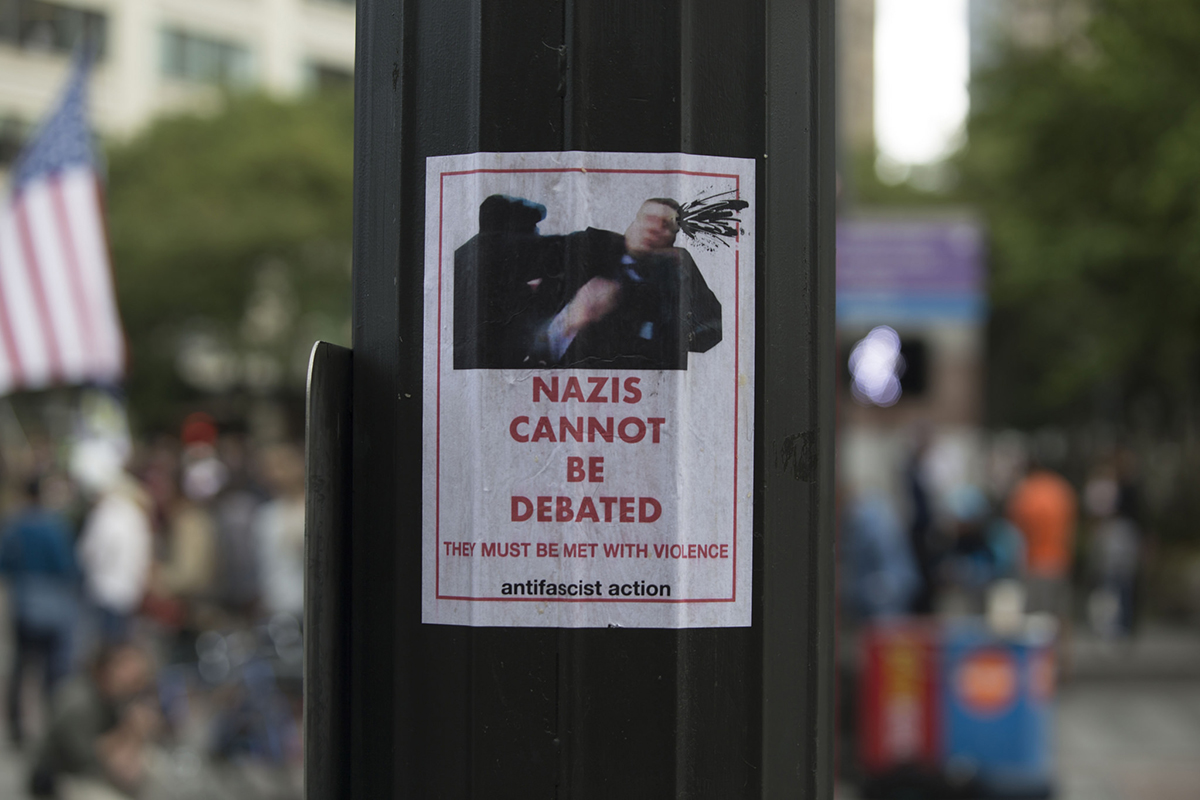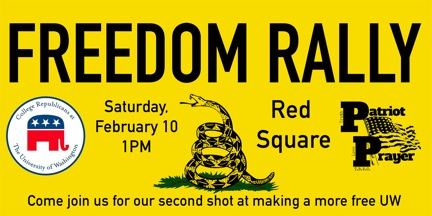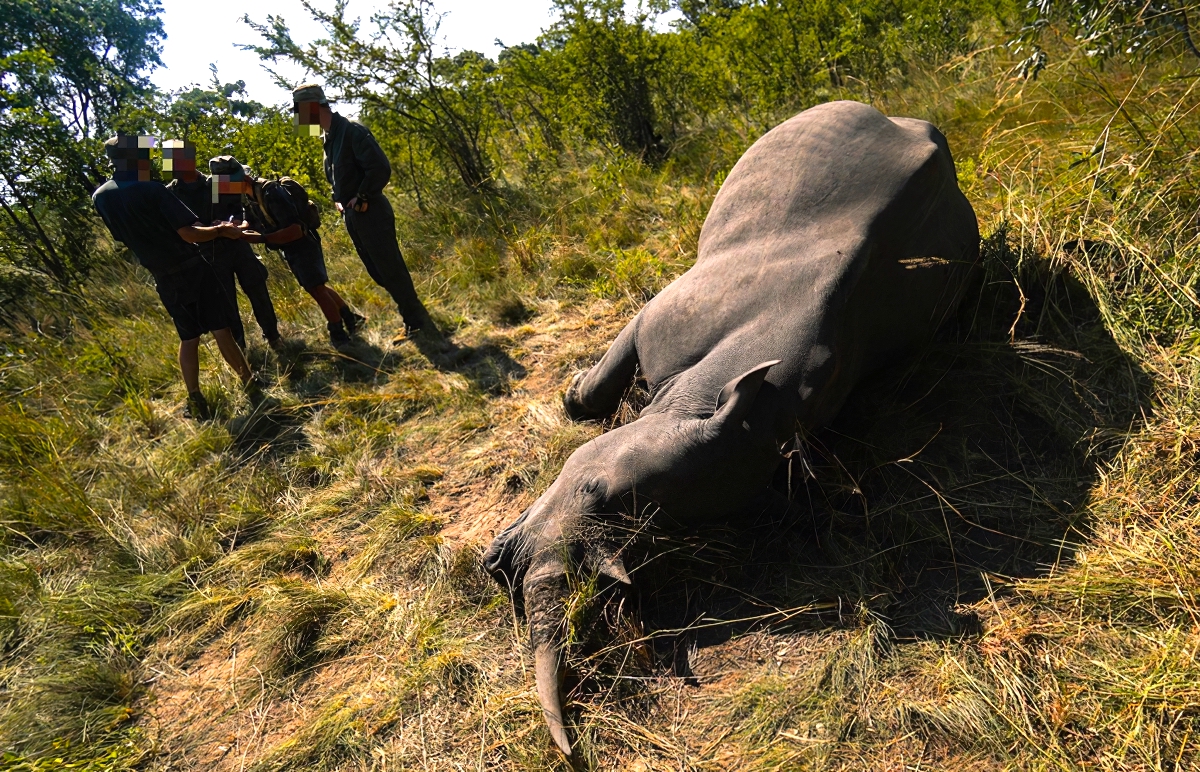Activism
When Two Tribes Go To War
That fee was temporarily suspended by a federal judge on first amendment grounds, although the final decision is still pending.

I found the theatrics almost comical at the Freedom Rally at the University of Washington on February 10, but I couldn’t ignore the disturbing breakdown of the social bonds that normally allow us to explore a controversy rather than create one. Our official motto is “lux sit” (“let there be light”) and, back in 2016, our university president Ana Mari Cauce wrote, “Let us strive to create light, not just heat, even when our dialogues are heated and positions passionately held.” Unfortunately, we failed.
Our university gained notoriety in January of 2017 when the UW College Republicans invited Milo Yiannopoulos to speak and a melee between protestors and counter-protestors got out of hand, leaving one person shot and several others injured. The university was understandably concerned about potential problems when the College Republicans invited a group called Patriot Prayer to speak at a rally on Red Square (so named, as legend has it, primarily for the red brick tile but also perhaps a nod to political leanings on campus).

In the days leading up to the event, the university issued unusually strong warnings to all UW community members to avoid Red Square after the UWPD obtained credible information that outside groups intended to instigate violence. A number of events planned for that day, including some in celebration of Black History Month, were canceled. The university also decided to charge the student group a $17,000 security fee. That fee was temporarily suspended by a federal judge on first amendment grounds, although the final decision is still pending.
The outcome for Milo last year was predictable because he is a provocateur who, by his own admission, makes outrageous statements to upset people. But I couldn’t tell at first why Patriot Prayer would generate so much hostility. They do not have a public web page and they do not list any principles or issues on their Facebook page. Their leader Joey Gibson makes many statements, but it is not clear whether he is speaking as an individual or describing the goals of the group. Their most common themes are a desire for smaller government, support for Donald Trump, and fighting for free speech.
Their raison d’être seems to be making large crowds of people angry. When you watch video footage of what they say and how they interact with audience members they seem to be spoiling for a fight, although they intentionally practice a variation of nonviolent protest that they attribute to the examples of Jesus, Gandhi, and Martin Luther King, Jr. They are more famous for being considered infamous than for any actual claims or deeds.
That didn’t stop the opposition from deciding what Patriot Prayer stands for. The most common and most inaccurate complaint was that they are racist and affiliated with white nationalists. “Say it loud, say it clear, racists are not welcome here,” the protesting crowd chanted along with, “Racists, bigots, antigay, Nazi bigots go away.” A protestor interviewed by KOMO-4 News opined that the “Make America Great Again” hats worn by Patriot Prayer really mean “Make America White Again” and accused the rally organisers and attendees of racial ‘dog whistling.’

Nothing that was said at the rally indicated racism or support for white nationalists. One of the most moving speeches came from a young woman who lives near Seattle who said, “I’m a black woman, I’m bisexual, I’m a supporter.” She went on: “I realized that I actually share more in common with Trump than I do with Hillary Clinton and Obama,” noting that, “we have a lot of the same values,” including support for a southern border wall, a policy of ‘America first,’ support for America’s troops, and support for law enforcement. She mocked the “fascists on the other side of the fence” for calling them bigots and claimed that Antifa had beaten up two people “just for wearing an American flag.”
Patriot Prayer, meanwhile, had their own cartoonish characterization of the other side. Joey Gibson described UW as “a campus that is filled with wannabe Communists; that is filled with professors that is constantly trying to preach Communism and Marxist ideology, and yet deny it at the same time.” One protestor was holding up a Soviet flag, but Gibson came closer to the mark when he described the campus as being filled with Bernie supporters who are flirting with socialism. Most of the chants from protestors were about racism and immigration, although there was the occasional economic themed chant, as in, “Tax the rich! Feed the poor! Send the bigots out the door!”
If I were keeping score, I would give a win to the protestors for bringing out ten times as many supporters as the rally supporters generated. But, in terms of inspirational rhetoric, the win goes to Patriot Prayer for a series of speakers who gave passionate defenses of freedom and the power that individuals have when they are free of government. The protestors offered a Soviet flag, several people burned sage, an American flag was torn and torched, and a crowd of people chanted simplistic slogans that staked out political territory without providing any rationale for their views.
The substantial police presence (dozens of officers) prevented violence for the most part, but also virtually guaranteed that there would be no possibility of dialogue as the rally participants were fenced into a small area. I barely got into that area because the police weren’t allowing people to enter unless some member of the group vouched for you. The police barricade served as a symbolic reminder of the gulf between the two opposing sides, but I noticed three other examples of a broader fraying of social connection: distrust of government, an assumption of hypocrisy by both sides on the part of their opponents, and a commitment to increased conflict in the future.
Patriot Prayer had the usual anti-government rhetoric one would expect from a right-wing libertarian group, denouncing liberals who overtax, over-regulate, and indoctrinate the young in state-supported schools. A few of their members talked about the wider patriot movement (rancher Clive Bundy’s 2014 standoff with the government and the 2016 takeover of the Malheur National Wildlife Refuge in Oregon). The protestors talked mostly about Trump and Pence and their use of power to pursue policies that they perceive to be fascist, particularly with respect to immigration. I was handed a flyer distributed by a group called Refuse Fascism that read, “This Nightmare Must End: The Trump/Pence Regime Must Go! In The Name of Humanity We REFUSE to Accept a Fascist America!”
Meaningful dialogue requires at least a modicum of respect, so it was disheartening to see both sides accusing the other of saying one thing but meaning something else. Patriot Prayer denounced racism but the protestors claimed that they were racists no matter what they said. The protestors were mostly anti-Trump progressives with a hint of a socialist agenda, and yet Joey Gibson described them as Communists infused with Marxist ideology who “deny it at the same time” and denounced Seattle for various sins including electing a Communist to its city council (presumably a reference to Kshama Sawant who is a socialist).
Most disturbing was the hint of more conflict to come. Joey Gibson said, “I’ve been pretty nice to liberals…[but] my patience is running thin.” He promised a “huge announcement” at an upcoming event and described the rally supporters as being at “ground zero, behind enemy lines.” He added that, “All of the hate you get is because you’re doing something right for the man above.” In other words, this conflict has become more than just a discussion of political ideologies – it is now a crusade.
On the other side, dozens of students covered their mouths with bandanas to indicate solidarity with Antifa. Even before the rally took place, the College Republicans encountered this sense of rage when a young woman shouted at them as they put up posters for the event. The short video of the confrontation posted on the College Republicans’ Facebook page is worth watching, but the most ominous remark was, “The people who come out in masks with bats, they’re people like me who’re tired of being hurt their whole fucking lives by white men.”
On the plus side, the turnout was small on both sides, so the rally does not indicate large numbers involved in cultural conflict at UW, and the police managed to avoid significant violence with just five people detained when they got into a tussle. On the minus side, we as a university failed to engender a useful exchange of ideas. Perhaps that was inevitable with both sides interested more in political theater than in a serious discussion of issues. Nevertheless, the intensity of the two sides does not bode well for the future. I saw no light, only darkness, and no sign that any coming together is likely to happen any time soon.






